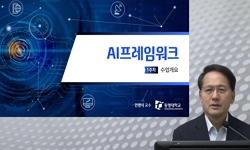This study aims to design and validate an automatic adaptive caption generation system that addresses the diverse linguistic needs of users who are excluded from conventional video caption services, which typically provide only direct speech-to-text c...
http://chineseinput.net/에서 pinyin(병음)방식으로 중국어를 변환할 수 있습니다.
변환된 중국어를 복사하여 사용하시면 됩니다.
- 中文 을 입력하시려면 zhongwen을 입력하시고 space를누르시면됩니다.
- 北京 을 입력하시려면 beijing을 입력하시고 space를 누르시면 됩니다.
Design of an Automatic Adaptive Video Caption Generation Technology for Users in Need of Linguistic Accommodation
한글로보기https://www.riss.kr/link?id=A109499010
- 저자
- 발행기관
- 학술지명
- 권호사항
-
발행연도
2024
-
작성언어
English
- 주제어
-
KDC
567
-
자료형태
학술저널
-
수록면
1-4(4쪽)
- 제공처
-
0
상세조회 -
0
다운로드
부가정보
다국어 초록 (Multilingual Abstract)
This study aims to design and validate an automatic adaptive caption generation system that addresses the diverse linguistic needs of users who are excluded from conventional video caption services, which typically provide only direct speech-to-text conversion. These users include sign language users with hearing impairments, foreigners learning Korean, and individuals with language development disorders—groups whose language usage is affected by physical, sociocultural, or cognitive challenges. We built a 'lexical mapping database' based on a hash table containing evidence-based objective data verified for each user group. Utilizing prompt engineering and fine-tuning techniques with transformer-based large language models (LLMs), we developed a system that automatically generates adaptive captions. Demonstrations using actual YouTube™ video contents confirmed the potential for universal applicability of this technology in generating adaptive captions for a variety of users in need of linguistic accommodation.
동일학술지(권/호) 다른 논문
-
생성형 AI를 활용한 영화 시나리오 창작의 실험적 고찰
- 한국방송·미디어공학회
- 최영희(Choi, Young-Hee)
- 2024
-
생성형 인공지능을 활용한 보도 방송 그래픽 제작의 커스터마이징 모델 개발 : KBS 보도 그래픽을 중심으로
- 한국방송·미디어공학회
- 이영화(Younghwa Lee)
- 2024
-
- 한국방송·미디어공학회
- 김건우(Geonwoo Kim)
- 2024
-
RAG을 활용한 사용자 맞춤형 실시간 데이터 학습 문서 검색 프레임워크
- 한국방송·미디어공학회
- 김현중(HyunJung Kim)
- 2024




 DBpia
DBpia




